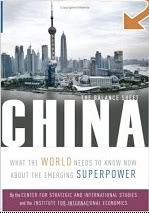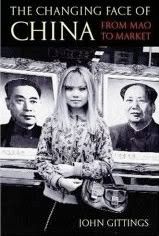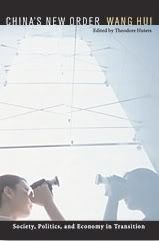China and Globalism
William Greider
The politics of trade will always contrive to decide the most fateful questions in private while leaving public debate to chew over narrow, derivative issues. Thus, by design, the China debate was intended to frustrate popular critics and avoid the kind of full-throated, fundamental debate about globalization that's ripening here and around the world. Congress is not voting on admitting China to the World Trade Organization but only on repeal of the relatively impotent requirement of annual renewal of China's "normal" status as a trading partner. Under such shrunken circumstances, the smart money assumes the President will win this one, since the White House can always "buy" the last ten or fifteen votes by promising parochial favors to small-minded representatives indifferent to the international consequences.
Perhaps so, but--surprise--these are not normal times. Vigorous opposition mobilized by organized labor and many allies has already succeeded in transforming a remote diplomatic measure into a national test vote on the values of the global economic system. Details aside, the critics have framed a choice between dubious promises from crass commercial interests and the larger claims of longstanding American principles--a vote between money and values. Although portrayed by the big media as backward-looking provincials, the opponents have won the moral high ground--speaking for the future as progressive reformers, beckoning Americans to a more promising sense of what international relationships can be. Whatever the outcome, this roll call is not the climax of the China debate but its beginning. Indeed, it may become a threshold to the robust debate on globalization the establishment is so eager to avoid.
China is easily demonized, given its size and repressive politics, but it is also admirable for its energies and ambitions. Like other poor nations, China aspires to throw off centuries of stale history and become a modern, world-class industrial power. Like previous developing economies (including the nineteenth-century United States), China will play hardball in pursuit of this goal, courting foreign capital while trying to shield its infant industries from the import competition of more efficient overseas producers.
If China does gain full status in the WTO, we will doubtless witness a replay of what happened with Japan, Korea and other fast-growing nations--a long, bitter diplomatic struggle to make China live up to its promises and open its markets according to the rules. Decades of banging on Japan in this regard yielded very little, and we can expect China to be no less stubborn. Beijing is more candid about its intentions than Tokyo. In recent months Chinese officials have reassured domestic sectors--agriculture, insurance, telecommunications, among others--that its WTO market-opening agreements are "theoretical."
The point is this: China may indeed become the focus of a frustrated, embittering politics that describes it as the new "problem child," but China will only be the latest and largest expression of disorders embedded in the system itself. Rather than depict China as uniquely devious or evil, the hard questions ought to be directed at the design and operating principles of globalization. This malfunctioning system was not, after all, created by poor nations but designed in the citadels of advanced capitalism, especially Wall Street and Washington.
In fact, it would be impractical--and even unwise--for China to keep its word and comply with the WTO agreements. To open its financial system swiftly to foreign banks and investors would invite the same inward rush of manic capital that led to sudden breakdowns in other fast-growing Asian economies. To "rationalize" state-owned enterprises and domestic markets in the manner envisioned by the WTO would generate great inequities and social upheaval. The process of modernizing and privatizing has already created massive unemployment and simmering unrest across the nation--sporadic violent protests and mass strikes by displaced workers, often enraged by the official corruption of deal-making with Western capitalism. This is not an argument for maintaining China's status quo but a warning against the kind of "shock therapy" haste that the global system prescribed for Russia. The Chinese have so far been wise enough to avoid that brutal road to free-market capitalism; one would have thought that US leaders had also learned something from that failed experiment. However, if pressures from foreign capital do persuade China to change swiftly, the consequences may be harsh repression and unpredictable violence. If there's another tragedy like Tiananmen Square, US capital will be implicated in the bloodshed.
The globalist establishment assumes that bringing China into the WTO will throw a huge log in the path of reformers seeking labor rights, environmental protection and other social standards as new operating rules for globalization. But those smug leaders may have it backward. Certainly, China provides a new obstacle to reform, but its main impact may be to hasten the discrediting of the WTO and other international institutions. China's irregular presence may dramatically demonstrate the lawless contradictions tolerated within the system. The WTO regime cannot now enforce its commercial edicts in disputes among the most advanced economies. Imagine the WTO's impotence when it tries to impose its "free trade" ideology on developing China.
These and other contradictions lead to one stark proposition: The present system does not provide a sane path to prosperity or democracy, not for China and not for other nations or the system as a whole. What the new reformers are saying is that globalization cannot proceed further along this reckless road, not without violent breakdown or political rebellion. But there is a more plausible way for the world to continue to pursue economic and social integration among rich and poor nations. It would require a frank admission that self-regulating markets--without rules to govern the social and economic behavior of investors and multinational corporations--are bound to fail. The alternative will require vigorous politics to promote new rules and principles that reflect the values and aspirations of societies and, ultimately, new institutions that can be trusted to represent people as faithfully as capital.
No one should imagine, even in the best circumstances, that a country like China will be able to change quickly or that it must abandon its economic aspirations. Reforming the global system means accepting a more patient--more realistic--sense of history than the free-market zealots tolerate. But reform does also mean setting the standards that nations like China must begin to live up to or else lose their place in the globalizing process. China is the 800-pound gorilla that finally brings these points into focus for distressed citizens everywhere.***
William Greider, National affairs correspondent William Greider has been a political journalist for more than thirty-five years. A former Rolling Stone and Washington Post editor, he is the author of the national bestsellers One World, Ready or Not, Secrets of the Temple, Who Will Tell The People and, most recently, The Soul of Capitalism (Simon & Schuster).
Link




0 Comments:
Post a Comment
Subscribe to Post Comments [Atom]
<< Home